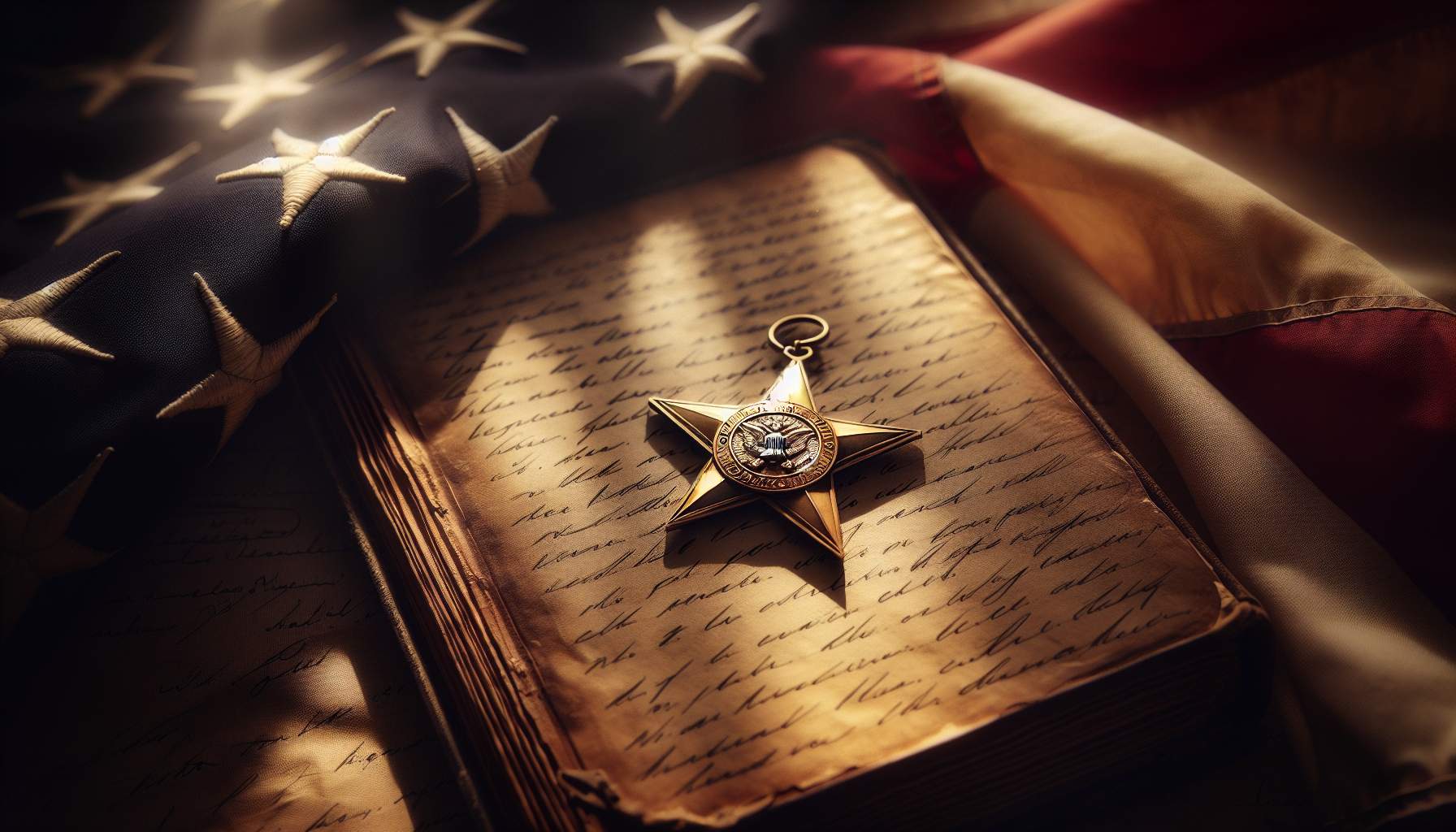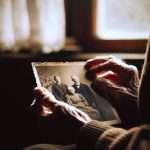In this insightful conversation, Jana Churchwell Scott, a distinguished expert in genealogy and military records, shares her journey into the realm of historical research. With a strong focus on aiding families to connect with their past heroes, particularly from WWI and WWII, she highlights the passion that drives her work. Delving into international archives and navigating through complex military documents have become second nature to Jana as she endeavors to bring solace and closure to many.
Her path was not just a professional choice but a calling fueled by an innate desire to preserve history’s personal stories. Through years of meticulous research and dedication, Jana has gained invaluable perspectives on the sacrifices made by individuals during tumultuous times in our history. Her efforts extend beyond mere documentation; they serve as a bridge linking present generations with their ancestral past.
Jana’s commitment is clear: every hero deserves recognition, every family story merits being heard. By sharing her experiences, she not only educates others about the importance of remembering our forebearers’ legacies but also inspires more people to uncover their own familial histories. Her work serves as a testament to the power of resilience and remembrance in keeping history alive for future generations.
Background and inspiration behind the company’s inception, along with its development journey
My journey into the realms of genealogy and military history was sparked by my parents’ dedication to tracing our ancestry. They spent years compiling a treasure trove of documents, photos, and tales that knit together the fabric of our family’s past. My fascination with military history took root in a more personal story — the tragic loss of an uncle during WWII, whose plane crash remained shrouded in mystery for years. It wasn’t until we stumbled upon an official accident report that we uncovered the truth about his fate and those who perished alongside him.
Driven by this revelation, I delved deep into researching not just these men but also reaching out to their families, piecing together their stories as well. Standing at the crash site, holding relics from my uncle’s downed aircraft, something clicked; it was as if I had found my life’s purpose. This ignited a desire within me to ensure no other family endured the agony of unanswered questions regarding their loved ones lost in combat.
I transitioned from volunteering to launching a consulting business dedicated to aiding others in uncovering details about their relatives who served during WWI and WWII. My focus is chiefly on locating surviving kin and facilitating DNA matches essential for identifying soldiers whose fates were unknown.
Clients typically reach out with hopes of learning more about relatives lost at war through military records or DNA evidence. The bulk of my work revolves around:
- Finding next-of-kin for legal purposes,
- Securing mitochondrial-DNA, y-DNA, and autosomal-DNA matches,
- Investigating cases involving unknown parentage linked to military personnel.
Every case is a step towards bridging gaps between past sacrifices and present-day families longing for closure or connection to their heritage shaped by heroes.
How to Begin Researching Your Family Tree: Initial Steps
One of the most invaluable steps in tracing your family history is to engage with living relatives. Their personal tales and memories offer a treasure trove of information that you simply won’t find in public records or online databases. To capture these unique stories, consider conducting interviews with your kin. There are many resources available that provide question templates to help guide these conversations, ensuring no stone is left unturned.
Additionally, safeguarding your gathered data should be a top priority. Life’s unpredictable nature — be it due to natural disasters like floods and earthquakes, or technological mishaps such as computer crashes — necessitates the need for robust backup plans. Making copies of your research and storing them in different locations can save you from the heartbreak of losing precious findings overnight. This practice ensures that your hard work and valuable family legacy remain intact for future generations to appreciate and build upon.
Platforms such as Ancestry and MyHeritage simplify tracing family history, but some argue they lack accuracy and pose privacy concerns
I’m quite reassured that leading genealogy websites prioritize their user’s privacy and have implemented adequate measures to safeguard it. In the world of business, especially when dealing with sensitive personal data, absolute security is a lofty goal but not entirely attainable. Despite this, these platforms have a vested interest in diligently upholding the confidentiality of their client’s information. By and large, they’ve managed to do an impressive job at maintaining trust and integrity within their services.
The Impact of DNA Analysis on Your Profession

Most of the work I engage in is crucial for the U.S. Army, focusing on bringing back soldiers from World War II who were never accounted for. The key to solving these long-standing mysteries lies in DNA testing. This approach has revolutionized how we tackle cases that seemed unsolvable before.
The Defense Prisoner of War-Missing In Action Accounting Agency (DPAA) leads this effort by employing various forms of DNA testing, such as mitochondrial-DNA, y-DNA, and autosomal-DNA comparisons. These tests enable us to match living relatives with the remains of soldiers, moving us closer to our goal of accounting for every missing service member.
In this process, genealogists play a pivotal role. They’re usually the first ones to reach out to potential family members on an individual basis. Once a connection is established, it’s over to the casualty offices affiliated with each service branch. They collaborate directly with families willing to provide DNA samples voluntarily, aiding DPAA in achieving its mission.
It’s a team effort fueled by dedication and cutting-edge science aimed at honoring those who served by ensuring they are not forgotten.
What current trends and technologies interest you most?
The advancements in technology leveraged by the Defense POW/MIA Accounting Agency (DPAA) are truly captivating. They’ve harnessed cutting-edge techniques to connect living relatives with the remains of soldiers from historical conflicts, bridging a gap many believed unbridgeable. Previously, efforts to preserve and identify soldier’s remains involved chemical treatments like formaldehyde, which posed significant challenges for identification. However, DPAA’s team of scientists and anthropologists have innovated methods that sidestep these obstacles, demonstrating remarkable progress.
In contrast to earlier times during World War II and subsequent conflicts where DNA analysis was unheard of, today’s approach is vastly different. Back then, identifying fallen soldiers was incredibly challenging due to the lack of sophisticated tools at disposal for military mortuary teams. Many soldiers were regrettably buried without identification in foreign lands up until as recently as 2012—a notion unfathomable today.
Thanks to modern science and dedicated research into DNA and family matching technologies, leaving a U.S. soldier unidentified is no longer an acceptable outcome. This shift not only honors those who’ve sacrificed their lives but provides closure for families long haunted by uncertainty about their loved ones’ fates.
What does the future hold for tracing family histories?
The significance of genealogy is on the rise, transforming how families across the globe connect with their past. With advancements in DNA testing, uncovering one’s lineage has transcended beyond traditional methods like sifting through old documents or relying on oral histories that may fade over time. This scientific approach fills gaps where conventional records fall short, providing answers to those seeking a deeper understanding of their heritage.
Genealogists dedicate themselves to safeguarding this crucial link between generations. They champion the preservation of historical narratives and embrace modern technologies to ensure these tales endure for future descendants. Their efforts not only help individuals grasp their familial roots but also foster a stronger sense of identity among family members scattered around the world.
By blending science with storytelling, genealogy emerges as a powerful tool in bridging the past with the present, ensuring that no story goes untold and every ancestor is remembered.
What have you learned from your studies?
When it comes to tracing someone’s past, military archives offer a wealth of information that often surpasses what is available for civilians. This abundance of records allows us to piece together narratives, bringing to life the details of when and where individuals served, as well as the circumstances surrounding their experiences.
Unearthing tales from these documents provides a unique connection to history that’s hard to put into words. It’s an intimate journey into the legacy left by those who have fought and sacrificed in conflicts across generations. The process offers a profound sense of fulfillment unlike any other; it’s as though we’re directly touching history, honoring those who gave everything by remembering their stories.
This endeavor gifts researchers with an immeasurable emotional return, while also offering solace and closure to families who have lost loved ones in service. Discovering such stories within military archives is not just about remembering the fallen but ensuring their bravery continues to inspire future generations. It’s a testament that their sacrifices were never in vain—a lasting tribute that keeps their memories alive within our hearts and minds.



















